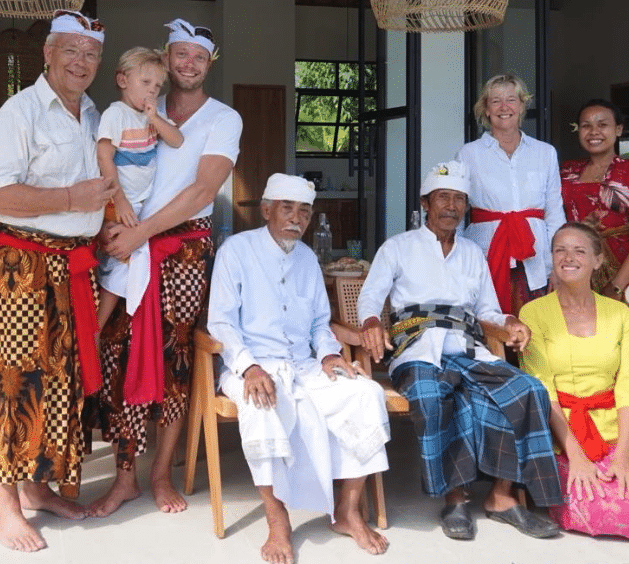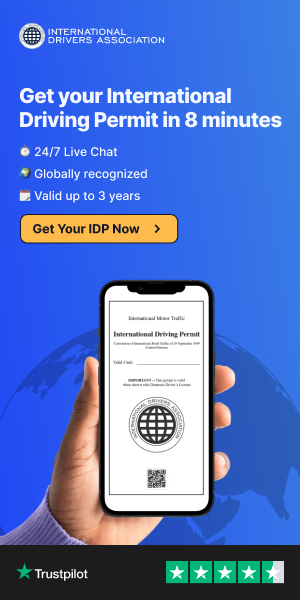Welcome to an insightful interview where we delve into the world of sustainable transportation solutions and expat life in Bali. Today, we have the privilege of speaking with Maike van Grootel, the Managing Partner of NIU Mobility, a leading brand in the electric motorcycle market, and the driving force behind SKUTE Bali, the first and only 100% electric scooter rental company on the island.
As an expat and passionate advocate for eco-friendly practices, Maike will share her personal experiences, motivations, and the positive impact of electric scooters on Bali’s sustainable future. Join us as we talk about sustainability, expat life, and the ever-increasing popularity of electric scooters in Bali.
SKUTE rents out the best electric bikes on a monthly basis, but they also offer a unique opportunity for all ‘ouryearinBali’ followers to try a SKUTE bike for one month before making a purchase. Plus, if you decide to buy, they’ll deduct the one-month rental from the retail price. So, let’s dive into this interview and discover the exciting world of sustainable transportation in Bali.
Can you tell us a little bit about yourself and where are you originally from?
Hey all, my name is Maike van Grootel and I’m from Amsterdam, the Netherlands.
When did you first arrive in Bali, what brought you here and how long do plan to stay?
Me and my family first arrived in Bali just before the covid pandemic. We wanted to experience how our life would be without Dutch winters, with more time for our family and with more adventure and outside time. We fully enjoyed those months together in Bali and in the last month we ended up with an electric scooter rental business and the plan to build a villa.
After that first period, covid hit, and our plans were postponed a bit (like everyone’s plans I assume). And then October 2021 we decided to go for it, nevertheless covid, and flew to Indonesia with still a 8 days quarantine requirement to enter the country.
What motivated you to move to Bali, and how did you go about making the decision to do so?
My motivation was 1) escaping winter time in EU (which makes me absolutely depressed), 2) to enjoy more time with my family outside (yeah slow time), and 3) to add some adventure to our life (without sacrificing comfort levels).
Also we were convinced that in Bali we would find people that were already living a more adventurous, entrepreneurial but slow life, from who we could learn.
My husband and I talked about this forever to be honest, and then we decided to stop the talking and go for the 4month experiment. And it was a big success!

Can you share more about where you live, the local neighbourhood, expat community and school life?
My husband, son of 5 (5,5 to be precise, it matters at this age apparently) and cat are living in Pererenan, which is just above Canggu. When we moved the village was still rather sleepy, but currently its developing rapidly. We have a large community of expats and local friends and colleagues.
Our son Seppe is going to Canggu Community School, which is a CIS accredited international school following the British National, Cambridge and IB curriculum, but then adapted to the Bali context.

You are working in Bali as the Managing Partner of NIU Mobility and SKUTE Bali, Bali’s premium electric scooter companies. Can you please tell us about the mission and vision and how it all started?
It all started when I met with 4 Green School parents, who founded SKUTE. The 4 founders sat together at The Bridge (Green School for GrownUps, love that concept!) and decided to put their experience as entrepreneurs into SKUTE, a new social enterprise dedicated to accelerate the transition to more sustainable mobility.
In the Netherlands, my career has been in the energy transition and electric mobility specifically. I was responsible for the first EV pilot in the Netherlands, the first smart charging pilot, and the first charging stations in Amsterdam. When I moved to Bali I wanted to drive electrically and SKUTE was the only company offering.
The founders had a clear vision and persistence for action. After our talk I decided to help them voluntarily and before I know, I was invited to join the company and take the lead together with my business partner Oliver.

Could you share some insights into the environmental impact of your electric scooters and why is it a smart choice for a future expat moving to Bali?
Yes 100%! As a rather small island, Bali distances are perfectly suitable for electric scooters. Also, we are visitors to the island, so you might as well leave no trace and keep Bali beautiful!
Electric scooters have major advantages over their petrol counterparts.
- Less air pollution: which everyone in Bali can related to when you are stuck in traffic. Air pollution is extremely bad for our health, especially causing lung diseases.
- Less CO2: which is causing climate change. Even with the current Indo electricity mix, you are saving 2/3 of the CO2 while driving compared to a petrol counterpart. If you charge with solar energy, it goes down to zero. We at SKUTE compensate the remaining 1/3 with high quality CO2 projects as long as the Indo electricity mix is not 100% sustainable.
- Less noise and vibration: so you can talk to your passenger, and you are not bothering your environment with loud engine sounds
- Less costs: Your electric kilometre is 8 (!!!) times cheaper than your petrol kilometre! Which makes a significant difference in your fuel spendings every month! Plus electric scooters do not require that much maintenance
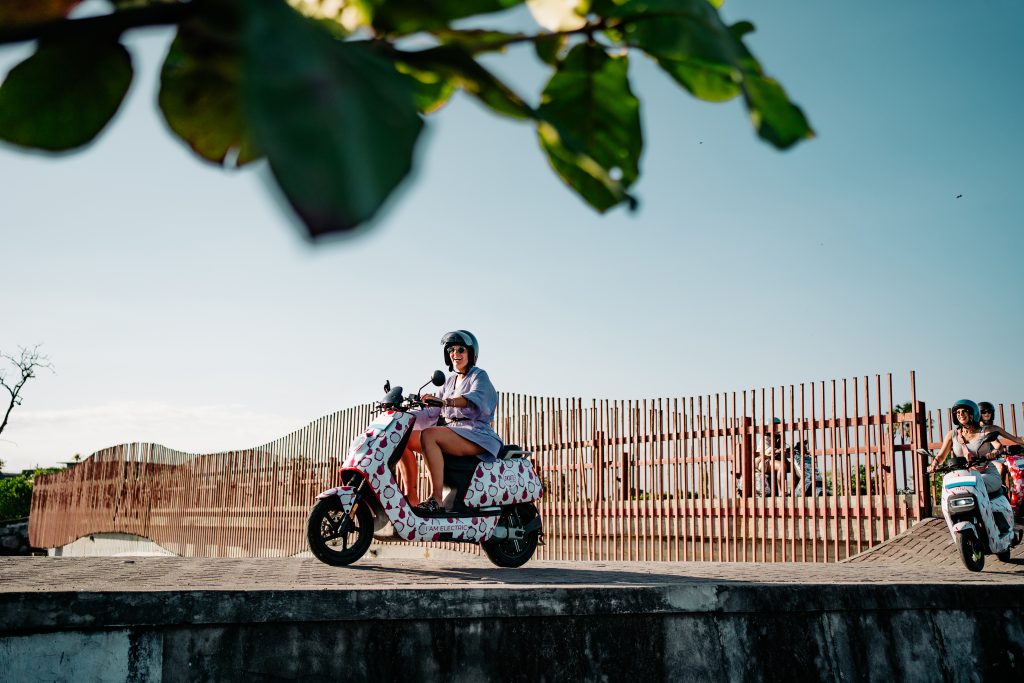
Are there any specific initiatives or partnerships that your electric scooter company is involved in to support local communities, promote sustainable tourism, eco-friendly practices or environmental conservation in Bali?
Soooo many! Bali is full of sustainable initiatives, which we love to see and we support where we can. Also many companies in Bali are pushing sustainable practices; like our partners Waterbom, Bali Safari, W Hotel, Lost Lindenberg, Spice Island or Island Brewery (among a few).
One I want to mention especially is our partnership with Sungai Watch. They are Bali’s river protectors. Bali has a severe plastic crisis, and these guys are doing everything they can to solve this issue. We are helping by organising cleanup together, offering them our electric bikes for operation and making our dealership out of recycled plastic from Bali rivers. Definitely join one of their cleanups when you arrive on the island, the are doing awesome work!
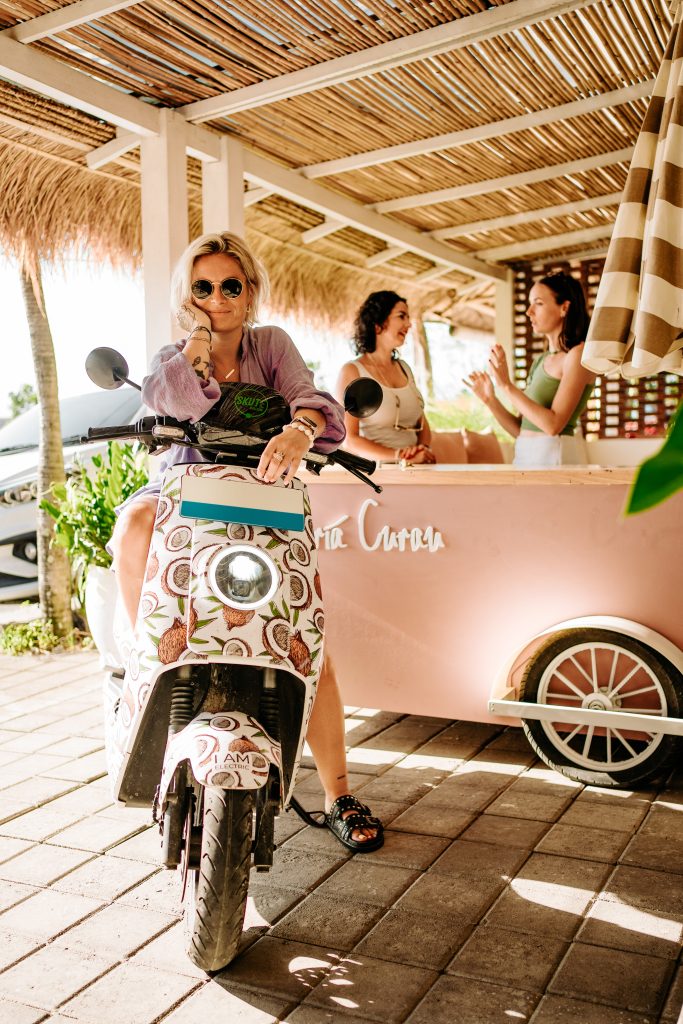
What are some of the key factors that expats should consider when choosing an electric scooter as their primary mode of transportation in Bali?
The main factor is: what do you want to contribute to the island? And what example do you want for your kids? The environmental and health advantages of electric scooters are profound.
Then, experience you driving behaviour to determine the best bike for you! Do you drive mostly in the village and shorter distances: The NIU NQiSport is perfect for you. Do you have little experience with scooter driving: the Gova3 is our best selling unit. Do you require often road-trips to the other side of the island: the NIU NGT might be your go to scooter.
We offer a TRY BEFORE YOU BUY deal for all ‘ouryearinBali’ followers: try you bike one month. Want to buy? Then we deduct that one month rental from the retail price.

Can you share some success stories from NIU that you’re particularly proud of?
These moments put a smile on my face;
- When we opened our Flagship store made out of recycled plastic (practise what you preach)
- The partnerships with all our sustainable friends on the isla nd (also worth checking: Kembali and the Punch networks)
- The energy of the team when we organize an electric rally, or a big event (from presence G20 to local school markets)
- When I see more and more electric scooters driving around in Bali. Its like bus drivers: we all say hi to each other!
- That we are involved in the first project in Bali to recycle the batteries into sustainable energy project to lengthen the usage lifecycle.

In your opinion, how do you see the future of electric scooters in Bali and their role in shaping the overall transportation landscape of the island?
Electric scooters will have a leading role in Indonesia and Bali in the coming years. The growth rate of EV is enormous. The government has big ambitions and more and more brands are entering the market (which I love to see, the competition are the petrol bikes from my perspective).
Important is that we push brands with high quality and proven technology. There are also many lower quality cheap bikes introduced to the market, which makes me worry about what will happen with those scooters when they breakdown soon. Indonesia should push high quality scooters with a proven technology and excellent after sales service. At NIU, we are serious in leading this transition.
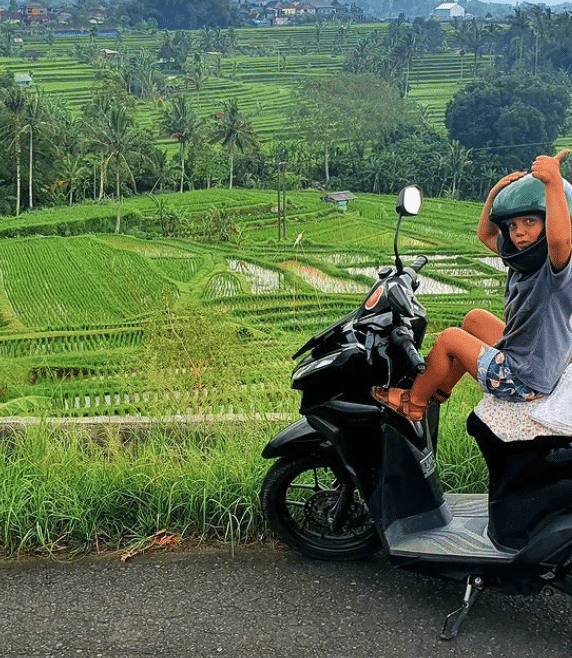
How has living in Bali influenced your personal and professional life, and what opportunities have you found here?
Think I answered this already in other questions. But one thing I want to add: they always say that you are the average of the group of people you hang out with. In Bali, that group is focusing on health, sustainability, a good work / private balance, time outside, sport and entrepreneurial and investment opportunities. Its amazing how often we see friends, without planning it way in advance. I simply love the rhythm of Bali life.
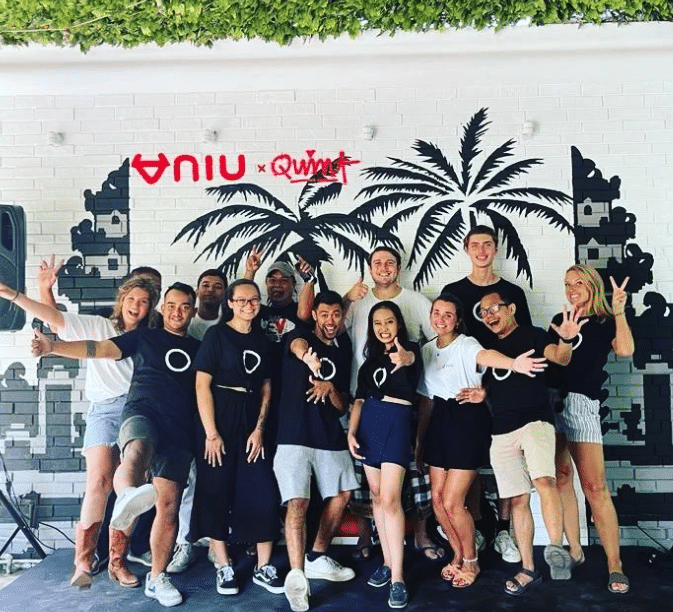
How have you adapted to the local customs and traditions in Bali, and what have you learned from the experience?
From my team I learn a lot about all religions from Indonesia and how all religions life and work together peacefully and respectfully.
In Bali there are ceremonies every day, all day long. Roads get blocked for it and you have to wait. You see people practising their religions with little offers every day too. Religions is so integrated in day-to-day life, which is amazing to witness. And also makes you slow down, be more mindful, think about what is really important and feel part of communities more (even as a non-religious person).
How do you see Bali evolving and changing in the future, and what impact do you think this will have on expats living here?
Politics want to promote long term visitors and expats, and reduce the cheaper tourism options. I think this would be very healthy for the island in the long run: if you stay longer on the island, its also your home, and you will threat it like that. All our long term visitors need to contribute to the island and keep Bali beautiful. Its our joint responsibility.
What would you say is the best thing about living in Bali? Why is it so good for families?
It’s the most easy going life you can imagine. Everything is easy to arrange, from help in house, to good schools, and from healthy food to last minute weekend trips. Go with the flow, and embrace Bali’s good positive friendly vibes.
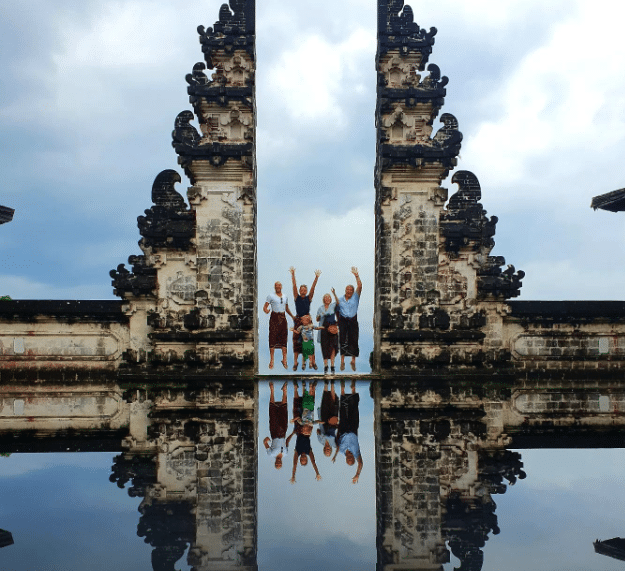
What advice would you give to other families who are considering a move to Bali?
- Come to Bali: you will love it and stay longer than you planned! Talk less about it, and just go for an experiment.
- Think about how you can contribute to the island in a positive way: by using sustainable transport, go to cleanups, reduce your plastic waste, use for recycle companies for your waste, eat local and vega(n) and buy local!

